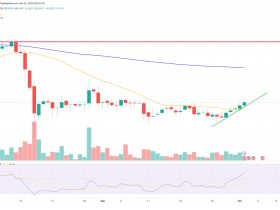As financial institutions worldwide explore the adoption of digital currencies, Hong Kong’s stance on its own Central Bank Digital Currency (CBDC), known as e-HKD, remains cautious. A recently published report by the Hong Kong Monetary Authority (HKMA) highlights both the opportunities and challenges surrounding the implementation of a retail CBDC in the special administrative region.
Though the HKMA recognized the potential advantages of e-HKD—including faster and more cost-efficient transactions—the authority concluded that more research is necessary. This uncertainty comes despite Hong Kong’s clear ambitions to solidify its reputation as a virtual asset hub, demonstrated by its granting of the first set of licenses for cryptocurrency trading platforms earlier this year.
Potential Advantages of Retail CBDC: More Than Just Digital Money
The HKMA’s recently concluded Phase 1 of its pilot program was implemented to evaluate the feasibility and potential benefits of e-HKD. The pilot highlighted three primary areas where a retail CBDC could add value: programmability, tokenization, and atomic settlement. These features could bring in a more efficient and inclusive financial ecosystem in Hong Kong, potentially redefining how transactions are conducted.
Hong Kong’s Monetary Authority explores the potential of a retail digital Hong Kong dollar (e-HKD) in its CBDC pilot’s phase 1.
E-HKD may enhance payment systems with programmability, tokenization, and faster transactions, but further investigation is needed.#CBDC
— TheLuwizz (@theluwizz) October 30, 2023
The authority also cautioned that the pilot programs involved a limited number of firms and were conducted in a controlled environment, however. As such, whether these advantages would scale effectively in a broader, real-world context still needs investigation.
Roadblocks and Concerns: An Uncertain Path Forward
While Phase 1 yielded promising results, the report also identified “minor frictions” that could become more prominent or even unacceptable in a larger-scale implementation. The HKMA mentioned that understanding the implications of these frictions is essential for the next phase of research, especially in a bustling financial center like Hong Kong.
The need for additional investigation is not solely confined to understanding these frictions. It extends to fully grasping how a retail CBDC might fit into Hong Kong’s existing financial ecosystem and its role in facilitating new forms of economic transactions while maintaining financial stability.
Regulatory Framework and Next Steps: What Lies Ahead for Hong Kong and Retail CBDC?
Hong Kong has not been idle in its quest to become a leading player in the digital asset industry. Earlier this year, it initiated a new regulatory regime and has since awarded licenses to cryptocurrency trading platforms.
Project e-HKD, initiated in 2021, is another step in that direction. The HKMA now plans to “explore new use cases for an e-HKD and delve deeper into select pilots.”
According to the report, the ultimate decision to issue a retail CBDC in Hong Kong will depend on market development and the outcome of further in-depth studies. Further intensive research will determine whether the e-HKD can bring about the envisioned benefits without compromising Hong Kong’s financial stability.
Read the full article here













Leave a Reply